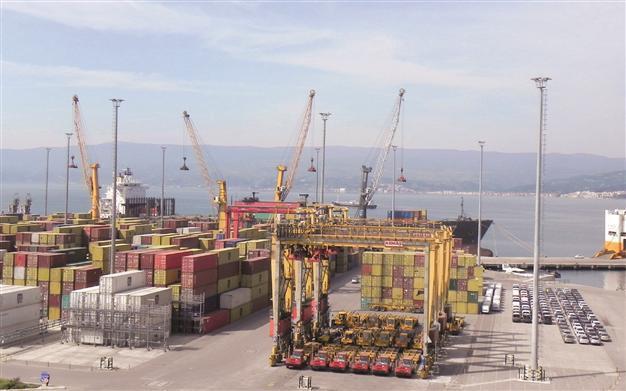Tax hike distresses car firms as market falters
ISTANBUL - Anatolia News Agency

Different models of cars line up at a port close to the northwestern province of Bursa, the capital of auto production in Turkey. DHA Photo
he Turkish automotive sector wishes to see less tampering with sales taxes, as frequently changing tax regulations make it harder for the leading sector actors to respond effectively ahead of the local market, the head of the Automotive Distributors Association has said.
“How can we do planning as the automotive sector [in such circumstances]?” Mustafa Bayraktar told Anatolia news agency yesterday. It seems useless to plan when there are tax hikes overnight, he said.
The latest hike in the special consumption tax (SCT) has surprised the sector, as local automotive sales have diminished since the beginning of 2012 and the estimated annual market contraction is 15 percent year-on-year, Bayraktar said, adding that the sector was in surplus in terms of its current account balance.
‘Sellers are tired’“It is a supply-driven automotive market rather than demand-driven one. So [suppliers] will keep on boosting the market, but [they] are a little tired of that. Because it is a supplier-driven market, producers, distributors and dealers do whatever they can to sell their goods; to the point where this process is no longer sustainable.”
Contraction in the sector was sharper at the beginning of the year, but the latest hike in the SCT will slow down the improvement in sales that was seen in July and August, according to Bayraktar.
The expectation regarding total sales for this year is between 785,000 and 800,000, which means an annual decrease of 10-15 percent, according to a survey conducted among ODD members.
“If Turkey grows 2-3 percent next year, this in fact will be de-growth for Turkey. A 2 percent growth figure will halt the engine of the economy. We are already feeling the slowdown in economy,” Bayraktar said. “Consumer loan applications have not decreased much, but the number of approved applications is much lower than the number of applications. Because banks are more selective now,” he said.
According to Bayraktar, the current monetary and taxation policies prevent the automotive sector from being optimistic for the future.
